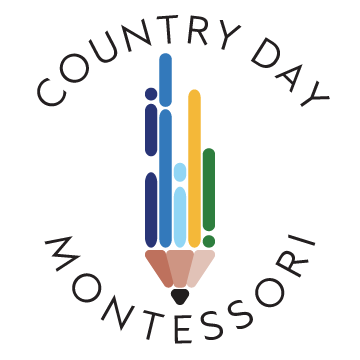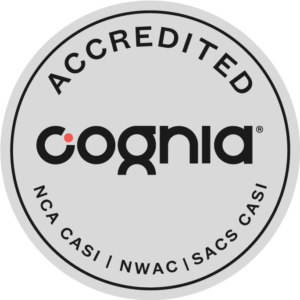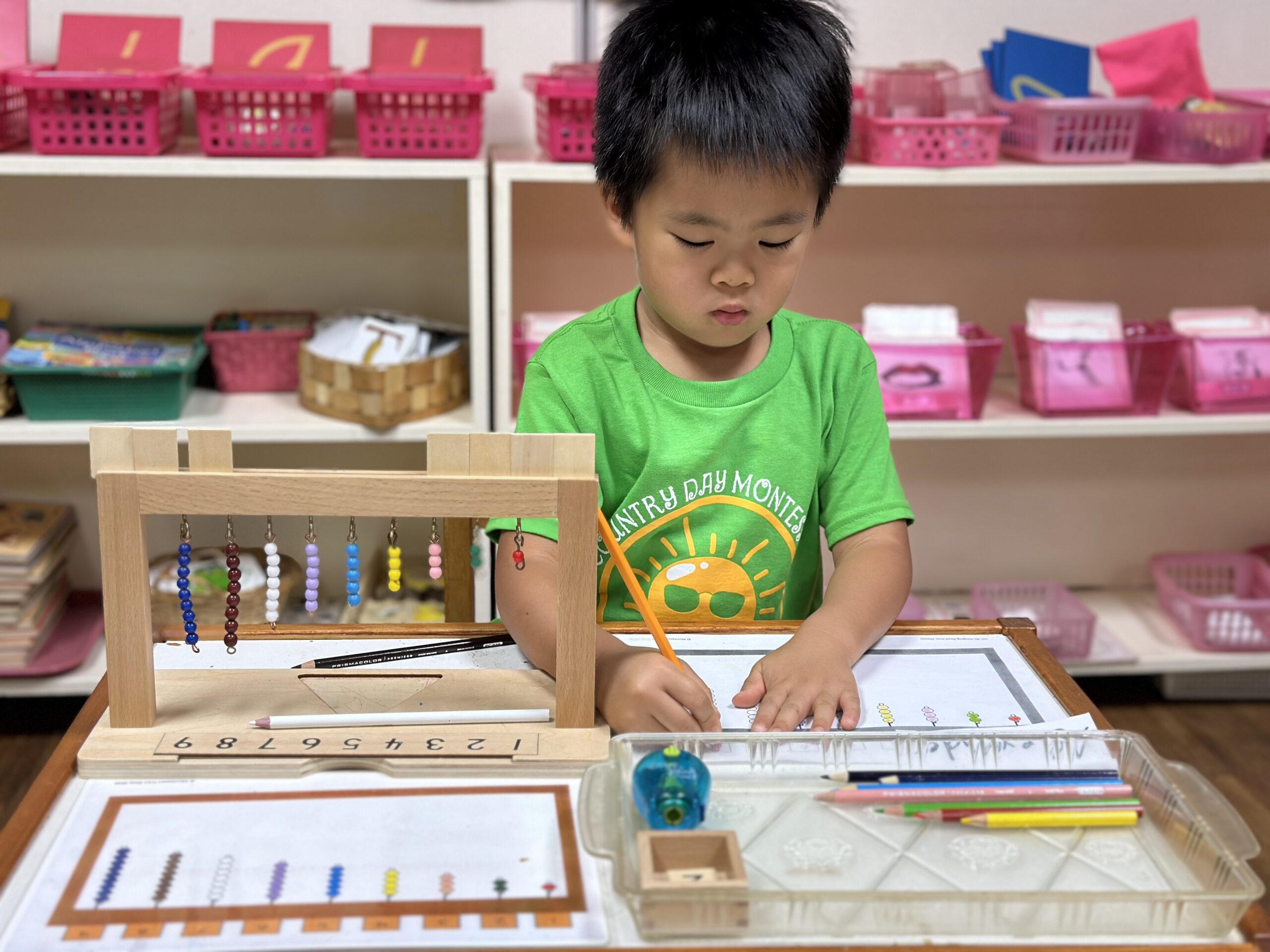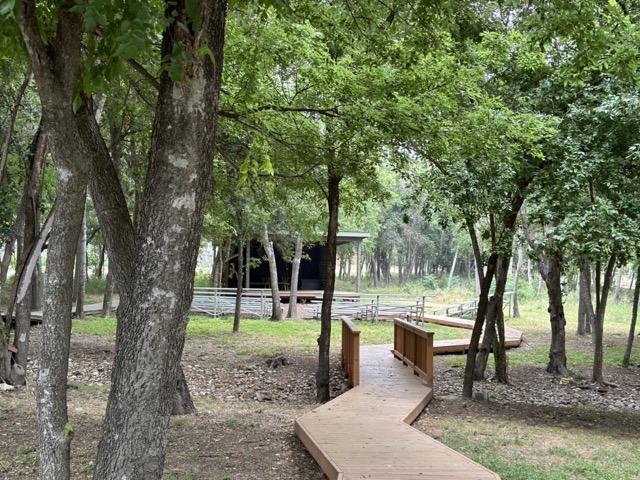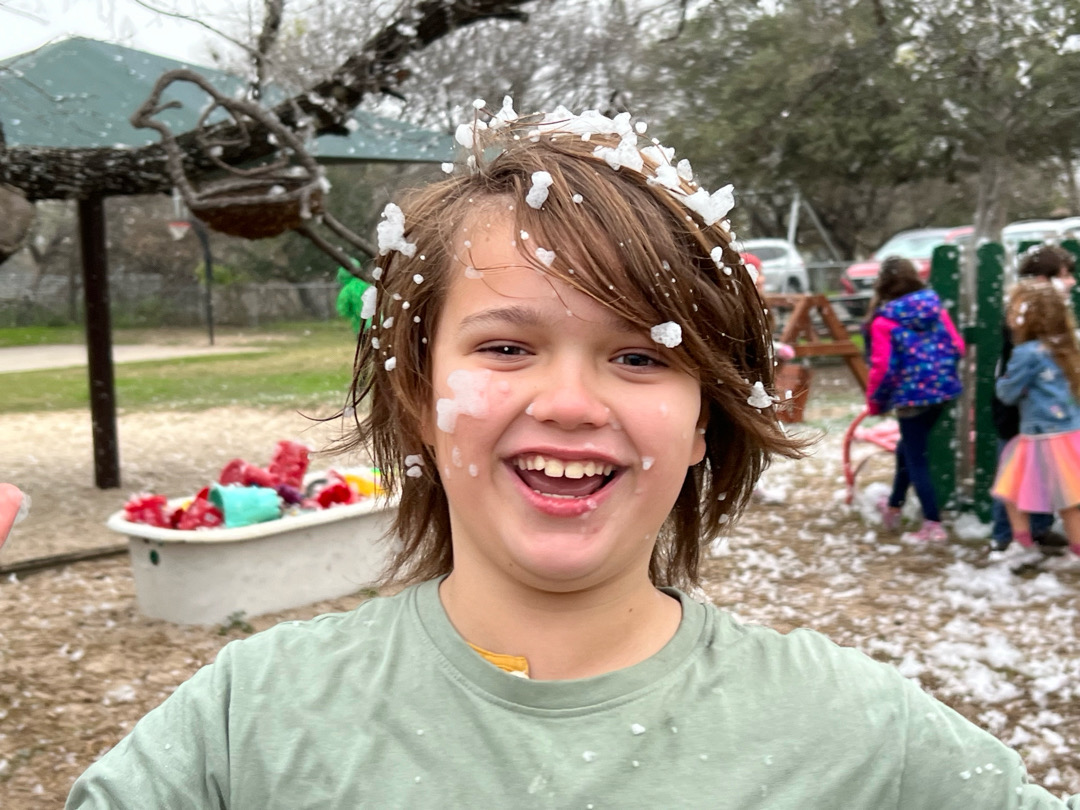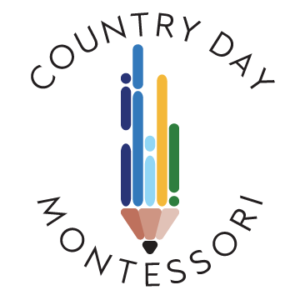
Fostering Independence and Love for Learning
Country Day Montessori
Who is Country Day Montessori?
Founded in 1983, Country Day Montessori aims to foster your child’s innate love of learning in our authentic Montessori environment. Country Day Montessori’s focus is on the core concepts of the Montessori curriculum: strong cognitive development, social skill development, emotional growth, and physical abilities. Our accelerated academic program includes allowing each student to choose their own work, guided by our staff. We also include a strong reading and writing program. Students benefit from both our Cognia-accredited academic program and a playful campus that boasts a butterfly greenhouse, flowering gardens, a happy goat, and mutiple chicken friends. Your child will learn to exercise their independence, to find and solve problems in their environment, and the value of a strong work-ethic.
Aside from Montessori studies, students have art class, motor development class, as well as reading and writing in small groups. Our graduates include exemplary students at Texas Military Institute, charter schools throughout the area, and gifted programs in the public school system. But our hope is for our students and graduates to excel wherever they go and in whatever line of work they ultimately pursue.
Country Day Montessori School Programs
Infant Care Newborn- 18 mo
Pre-Primary - 18mo - 3 years
Primary 3 - 6 Years Old
Lower Elementary - Grade 1-3
Upper Elementary - Grades 4-6
Summer Program
Would you like more information?
Schedule a tour to learn more about our Montessori programs.
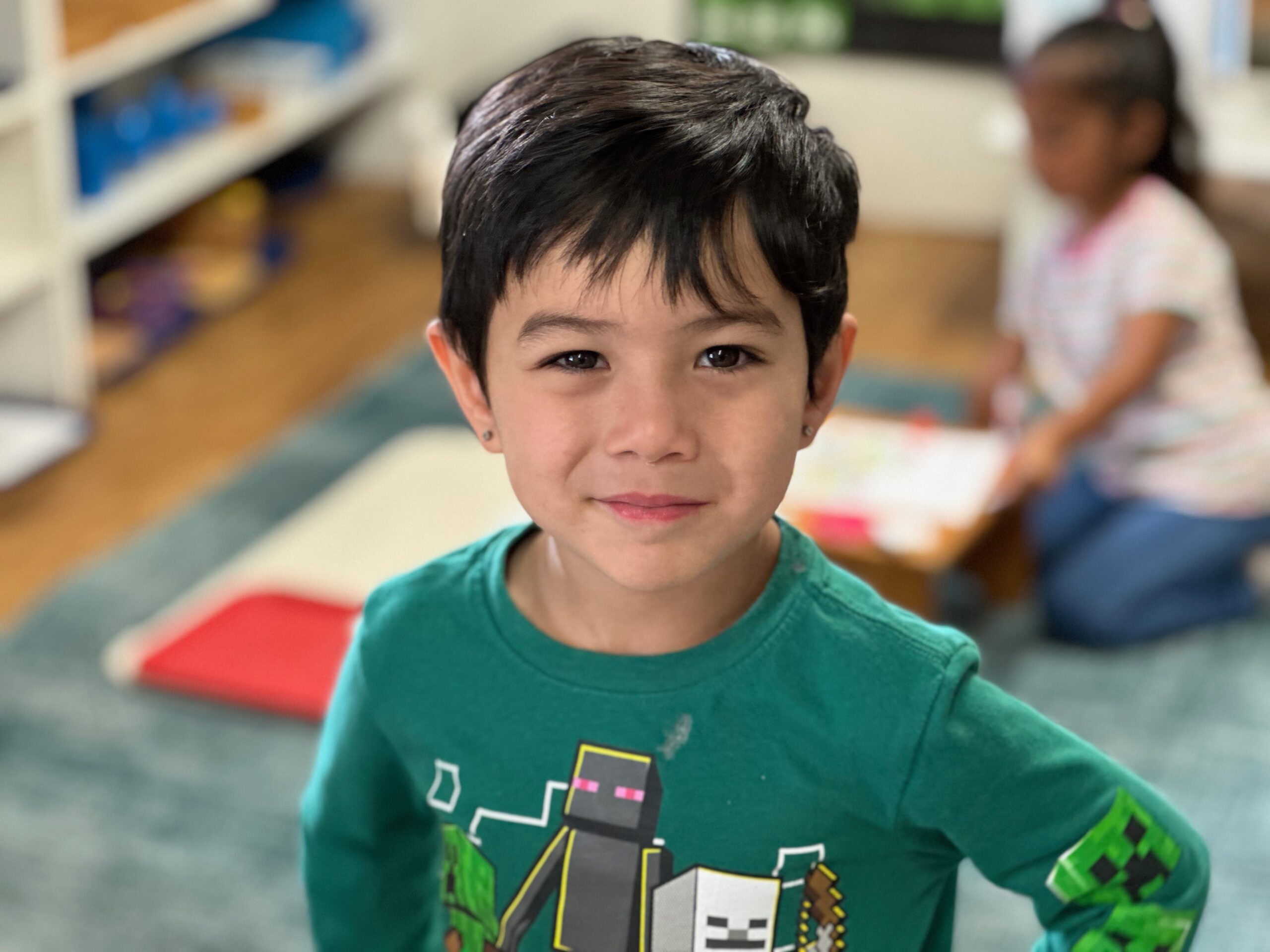
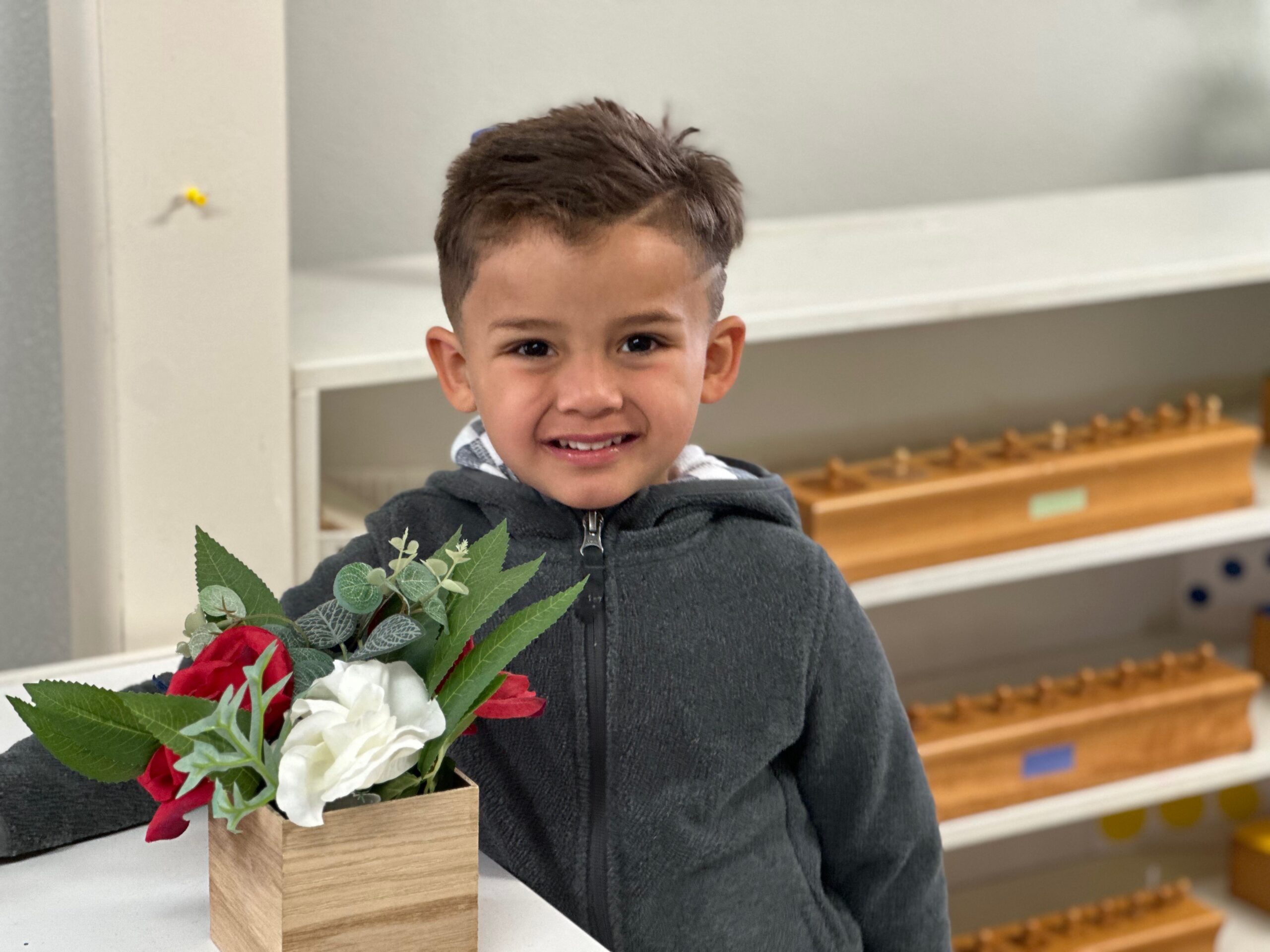
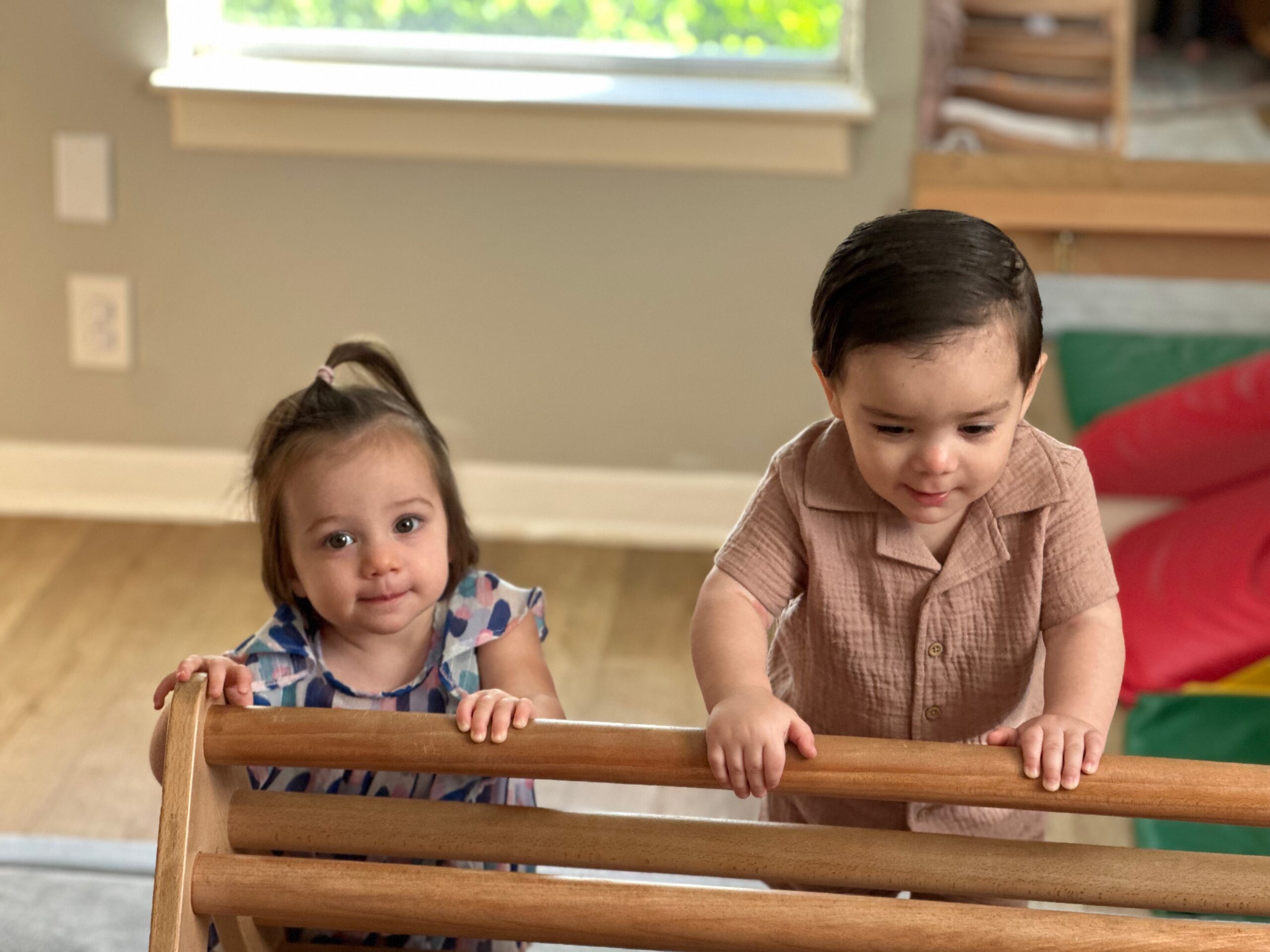
Best school ever!!!!! This is by far the best Montessori school ever!!! My daughter is thriving and not just surviving. She is blossoming, gaining more confidence and abilities daily!!!! They really are the absolute best and we recommend everyone that wants a safe, respectful, kind and ideal learning environment check them out!!!! My child is 3 and she can sow!
It is a great school! Our daughter went there for her first grade until we moved to Austin. She absolutely loved going to this school. She said that teachers and kids there were very kind. She enjoyed the activities that they did in the school and she learned a lot! I am very happy that our daughter went to the Country Day Montessori School. It is an outstanding school with great environment. Pros: amazing location, small school size, before and after school program available, excellent staff. Cons: no cons.
I have two children attending this school and I couldn’t be more thankful. The entire faculty is wonderful. I was not familiar with the Montessori method and took a chance on the school. Well the years keep passing and I keep re-enrolling. My children love the school. Thank you Ms. Betty Williams for founding this school.
Visit Our Campus
We invite you to see firsthand what makes Country Day Montessori special. Schedule a tour to explore our campus, meet our dedicated teachers, and learn more about our Montessori programs.
Things We Love About San Antonio
We’re proud to serve families from throughout the San Antonio area. Our community includes families from diverse neighborhoods such as Alamo Heights, Stone Oak, Terrell Hills, and Olmos Park. We appreciate San Antonio’s unique blend of rich history and modern amenities, creating an ideal setting for families who value both cultural heritage and urban convenience. Our teachers enjoy visiting the San Antonio Botanical Garden and the Witte Museum, which offer wonderful educational programs that support our science and history initiatives. After school events, our staff sometimes stops by local favorites like The Cove or Southerleigh Fine Food & Brewery for their delicious Tex-Mex cuisine – capturing the vibrant culinary spirit of the San Antonio community.
Other Areas We Proudly Serve
Frequently Asked Questions
What does Montessori School mean?
A Montessori school is a unique educational institution that follows the philosophy developed by Dr. Maria Montessori over a century ago. At Country Day Montessori in San Antonio, this means we use: Child-Centered Learning. The Montessori method emphasizes hands-on learning and developing real-world skills, where children are naturally encouraged to follow their own interests and curiosities. Our students work at their own pace, choosing activities that interest them while being guided by specially trained Montessori teachers.
It also means we use a developmental approach that focuses on fostering growth in all areas of child development:
– Cognitive development
– Social skills
– Physical abilities
– Emotional growth
Distinctive Features of our environment vs more traditional school is a prepared environment. Our classrooms are carefully designed with materials accessible on open shelves, beauty and harmony in the setting, age-appropriate learning tools, and natural elements both inside and outside.
Also the learning structure of a montessori education is different than traditional schools. Part of the curriculum for older students is to assist the younger students, helping them to learn mathematics, science, language, geography, or some other area of study. Our classrooms include daily long periods of uninterrupted work time, individual and group activities, and always are full of hands-on learning materials.
The core philosophy centers on developing independent, self-motivated learners who can think critically and work collaboratively while maintaining their natural curiosity and love for learning.
Why are Montessori Schools great for child development?
Montessori schools provide an exceptional environment for child development by embracing each child’s natural learning process. Unlike traditional schools, children from an early age are encouraged to select activities that align with their interests and developmental stage. This individualized approach builds confidence and independence while preserving their innate enthusiasm for learning. The mixed-age classroom environment creates a unique community where older students naturally become mentors, while younger ones gain inspiration and confidence about future challenges
The Montessori method excels at developing practical life skills through carefully designed activities. Children enhance their fine motor skills through tasks like pouring and sorting, while simultaneously developing self-care abilities, organizational skills, and problem-solving capabilities. These activities lay the groundwork for more advanced academic learning while building essential life skills that serve children well beyond their school years.
Social and emotional development flourishes in the Montessori environment. Children learn to work both independently and collaboratively, developing strong communication skills and emotional intelligence. The classroom setting encourages empathy, social awareness, and self-regulation, helping children become well-rounded individuals who can effectively navigate social situations.
The carefully prepared classroom environment plays a crucial role in development. Every aspect is thoughtfully designed with accessible, age-appropriate materials that encourage exploration and learning. This setting provides children with the freedom to make choices about their learning activities while working within a structured framework. As a result, children develop self-discipline, learn to assess and correct their own work, and build internal motivation that drives their desire to learn and grow.
Through this comprehensive approach, children become confident, capable learners who possess strong academic foundations while maintaining their natural curiosity and love for learning. The Montessori method nurtures not just academic achievement, but the development of the whole child – intellectually, physically, emotionally, and socially.
What is the difference between Montessori and Preschool?
Montessori and traditional preschools differ fundamentally in their approach to early childhood education. In a traditional preschool, teachers lead structured lessons where all children learn the same content at the same pace, often through passive listening and memorization. The environment is typically more colorful, with toys scattered throughout and a focus on unstructured playtime.
In contrast, Country Day Montessori takes a child-centered approach where students actively participate in their own learning journey. Children work with specially designed materials and choose activities that interest them, developing independence and confidence. The classroom environment is intentionally calm and organized, with materials thoughtfully arranged on accessible shelves to minimize distractions and promote focus
The teacher’s role also varies significantly. Traditional preschool teachers direct activities and deliver uniform lessons to the entire class. Montessori teachers act more as guides, observing each child’s progress and providing individualized support when needed. They avoid interrupting children’s concentration and allow them to work at their natural pace.
While traditional preschools often separate children strictly by age, Montessori classrooms feature mixed-age groupings where older children can mentor younger ones, fostering leadership skills and community spirit. The curriculum itself is flexible and expands based on each child’s interests and developmental needs, rather than following a rigid, predetermined schedule.
Most notably, Montessori views play as purposeful work, integrating academic learning with practical life skills. This holistic approach helps children develop not just academically, but also socially, emotionally, and physically, creating a strong foundation for lifelong learning.
How old does my new baby need to be to enroll?
We are equipped for students as young as 3 months old in our infant center. You can learn more about our infant center here.
Does Montessori Work?
Yes, Montessori education has proven highly effective according to extensive scientific research. A comprehensive review of 32 studies across eight countries shows that Montessori students consistently outperform their peers in traditional schools in several key areas.
Students in Montessori programs demonstrate higher performance in mathematics, literacy, and general academic ability (1), scoring approximately one-quarter of a standard deviation better than students in traditional education. Even more impressively, they show even stronger results in non-academic areas, performing one-third of a standard deviation higher in crucial skills like self-regulation, social skills, and creativity.
The benefits are particularly notable in early education, with the strongest gains observed in kindergarten and first-grade students. These positive effects are seen in both private and public Montessori schools, though private programs tend to show slightly stronger results.
The success of Montessori education stems from its unique approach where children choose their own work and learning path. This self-directed learning style enhances both academic performance and psychological well-being[2]. The method’s effectiveness is particularly evident in developing executive function, reading skills, and social problem-solving abilities.
Most importantly, these benefits aren’t just short-term. Research indicates that Montessori education creates lasting positive impacts on both academic achievement and personal development, providing students with a strong foundation for lifelong learning.
